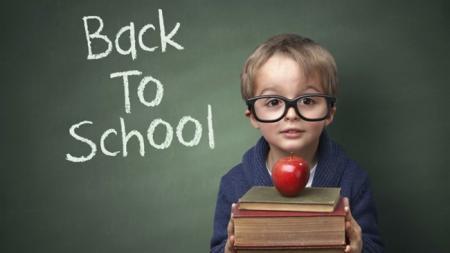
The transition from summer break back to school can be tough for everyone; but for families of children with special needs, Jennifer Kilgo, Ph.D., professor in the University of Alabama at Birmingham School of Education, said concerns about the back-to-school transition can be even more intensified, phys.org wrote.
"Every parent has concerns about the back-to-school transition, whether it's re-establishing a routine or anxiety if their child is going to a new school or getting a new teacher," Kilgo said.
"Now think about how much more intensified those concerns might be if you have a child with a disorder, like autism, and the child has communication, friendship or behavioral issues. Any kind of preparation you would do for a typically developing child is multiplied when you have a child with special needs."
While the needs of every child are different, and children who receive special education services will have an Individualized Education Program to follow, Kilgo says there are some additional things that parents can do to put themselves and their child at ease as they prepare for the new school year.
Try to schedule a couple of visits to the school prior to the first day so your child can get the lay of the land. If the child uses a wheelchair, this will help them become familiar with the routes they will take between classes. This is especially important if he or she is transitioning to a new school.
"Remember to think about the environment outside of the home and the people your child will interact with," Kilgo said.
"Whether it is the teacher, principal or the bus driver, reach out to them personally or via email so they know the child."
Kilgo said one of the things she has seen parents do that helps familiarize the adults who will be interacting with their child is to create graphic organizers or a one-sheet questionnaire about them.
"I love to see teachers ask students questions about their likes, dislikes, favorite activities and other related questions," Kilgo said.
"If the school doesn't do this, it can be a good thing for parents to do to further help the teacher learn unique things about their child, such as how the child lets you know they are feeling a certain emotion. Many children with special needs have alternative ways of communicating, and some have behavior plans that need to be followed whether they are in the classroom or on the school bus."
Play up anything that is familiar to the child, such as a friend or special activity.
"For children with autism or behavioral issues, social stories can help," Kilgo said. "These include photographs of some of the events that will take place each morning or what their day is going to be like."
Kilgo added that it is important for parents to appear calm and organized during the transition to avoid triggering any negative emotions in the child.
Robin Ennis, Ph.D., assistant professor in the UAB School of Education, advises parents to try to return to a schedule with regular bedtime routines and morning routines as soon as possible.
"Getting children and adolescents into a regular sleep pattern is very important," Ennis said.
"The start of the new school year is also an opportunity to set up new routines. For example, if you plan to have a new homework station or system for keeping track of family activities, review these with your children and put them into place consistently."
Ennis said there are several great books about school that can get students excited about the new school year. For younger children, check out ‘Teachers Rock’ by Todd Parr or ‘The Night Before First Grade’ by Natasha Wing. If your children are older, visit the library. The librarian can help you find great books set in the school environment.
